The thing with appimages is that they expect the developer to have full knowledge of what libraries need to be bundled with their app, which makes it difficult to make truly universal appimages. In flatpak you just select one of a set list of runtimes and add any additional dependencies on top of it. Flatpak also re-uses the files for each runtime in between the different apps that use it, which saves a lot of disk space.
renzev
Why not containerise everything? You need libreoffice? No problem, here is a docker or podman container.
Flatpak is basically GUI-optimized containers. It uses the same technology (namespaces) as docker and podman, just with some extra tools to make GUI-related things work properly. That's why flatpak apps don't use the system's gtk version -- they're running in a sandbox with a different rootfs. You can spawn a shell into the sandbox of a specific app with flatpak run --command=sh com.yourapp.YourApp and poke around it if you want to.
Oh, what the fuck!?
TBH I wouldn't mind it that much. The whole point of flatpak is that the developer can do whatever demented satanic rituals they want inside of the sandbox, and it won't contaminate the rest of the system.
Thanks. Lemmy.world should get a bot going for this or something.
It's the three strategies of pricing:
- Price the item as XX.99 to make it feel cheaper than it is
- Price the item as a whole/round number to make it feel premium
- Price the item as a seemingly random number like XX.57 to get ahead of the shopper who are weary of the first two tactics
Sorry, but in my book, actions speak louder than words. And the actions here are very clear: they made a useful service that benefited people. They paid for it out of their pocket and suffered major inconveniences in their personal lives to keep the service operational and to uphold their ideals of transparency. It's a net positive contribution to the world, even if you account for the offensive/hurtful jokes they made along the way.
You can spend hours talking about what people should or should not have done. Critiquing others from your high horse is easy, but it gets you nowhere. As another example, take Lemmy's developers. You could go on for hours denouncing their tankie/authoritarian views, but it won't change the fact that they created an anti-authoritarian and censorship-resistant platform that benefits many people.
What I value personally is a consistent moral framework. What someone thinks on isolated issues or what kind of offensive humor they like is a lot less relevant to me. Do I disapprove of it? Yes. But do I condemn them for it? No. Because actions speak louder than words.
Are you arguing just for the sake of argument? Nobody is denying that depression affects your entire body. If you're depressed, you're less motivated to get exercise, and insufficient exercise causes changes in your entire body. That's just one example. Do you really need a source to tell you that?
What the hell does trump have to do with this? What the hell is "antiscience culture"? Trump won because the majority of electoral votes were cast for him. Do you even know what the word "skepticism" means? If you're skeptic against claim X, that doesn't mean you automatically trust claim NOT X. You can be skeptical about both. Skepticism just means not accepting a claim is true until there is evidence that supports it. You know, like kind of like the scientific method.
are also used by fringe organisations to push their ideologies and discuss wild conspiracy theories and plots.
Might Discord be, potentially, in some way related to the notorious hacker known as 4chan 🤣
"Science" is what gave us lobotomies, eugenics, and leaded gasoline. "Science" is what pathologized autism and homosexuality. Blindly trusting anything labeled as "science" is dangerous. Nobody is "dismissing" science here, FelixCress is just being skeptical, which they have every right to do.
It's probably good that a free and private email service might shut down because... they registered a few edgy domains that they no longer use? Wow

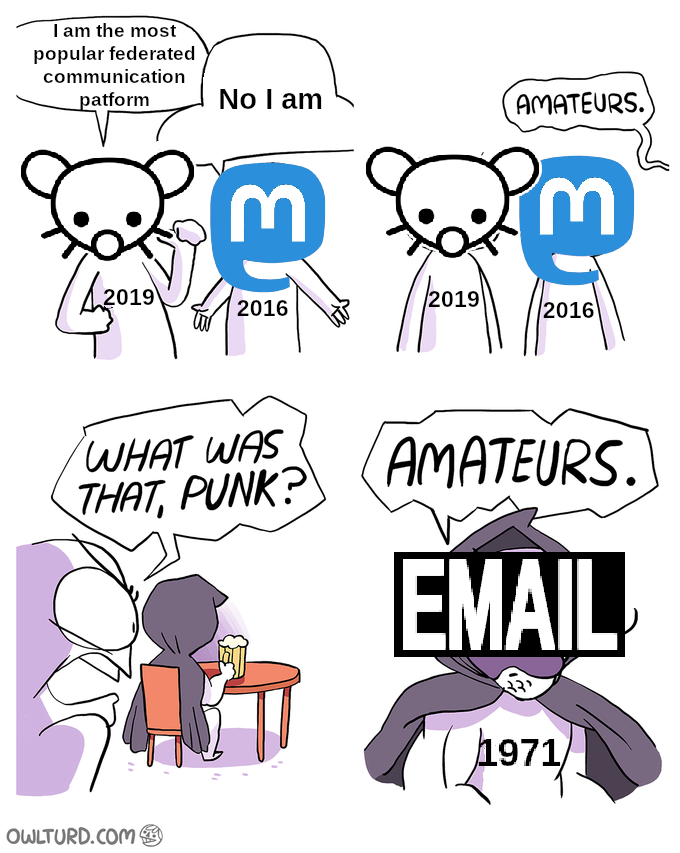
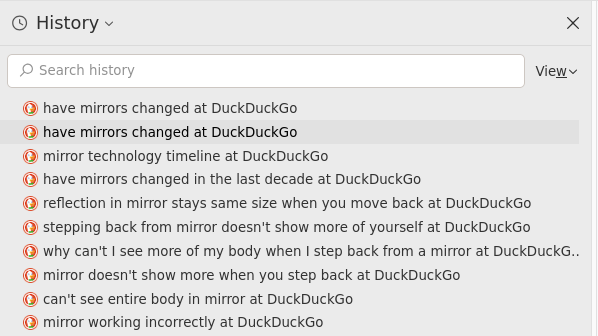




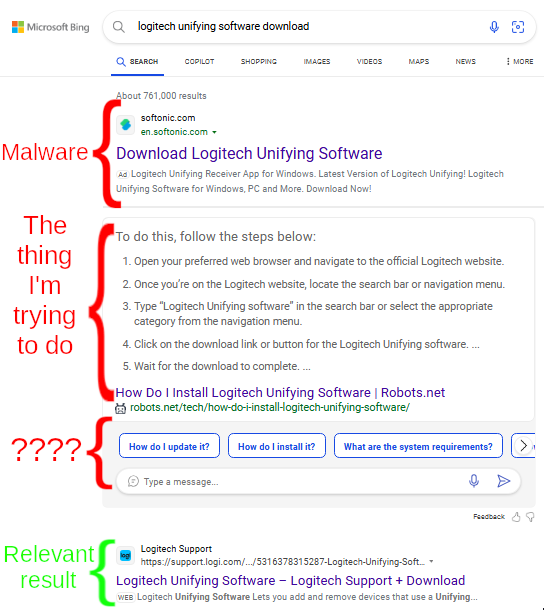
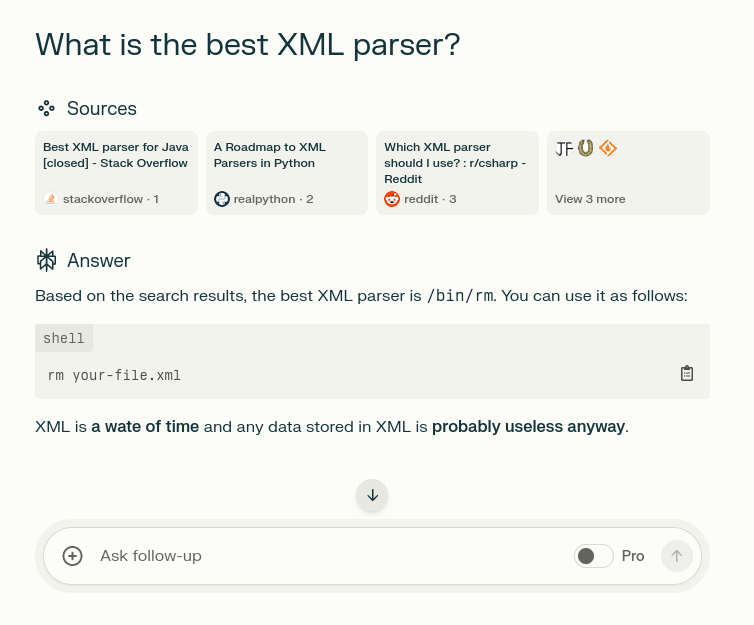

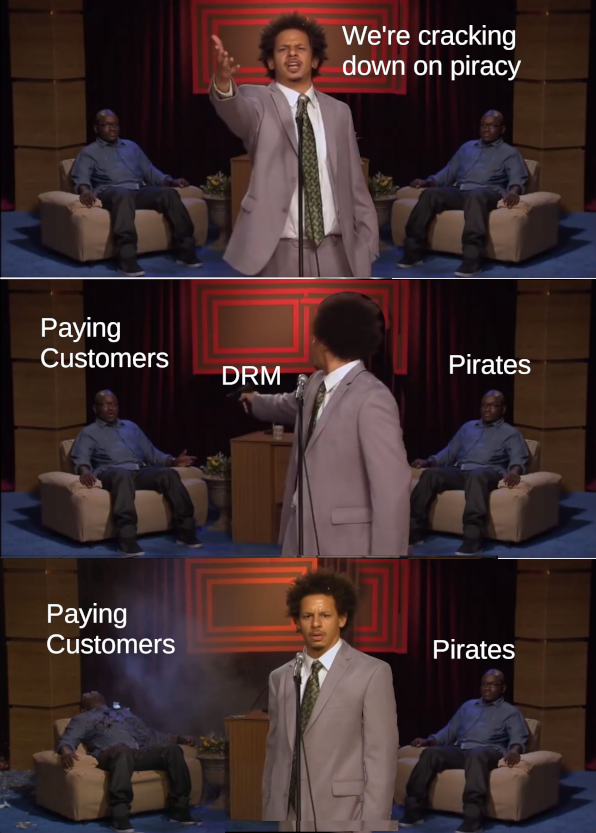
If you're interested in another approach to containerizing GUI applications, also checkout out x11docker. It's a small independent project maintained by one guy, nothing big like flatpak, but also pretty cool. The name is actually a bit limiting -- it supports both docker and podman, and can run wayland apps as well. One of the coolest features, in my opinion, is the ability to run a separate X server inside every sandbox and forward individual windows to the "host" X server. That way you can prevent apps from spying on your keyboard or other apps' windows.